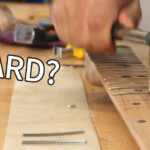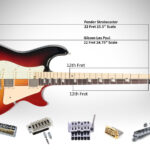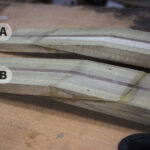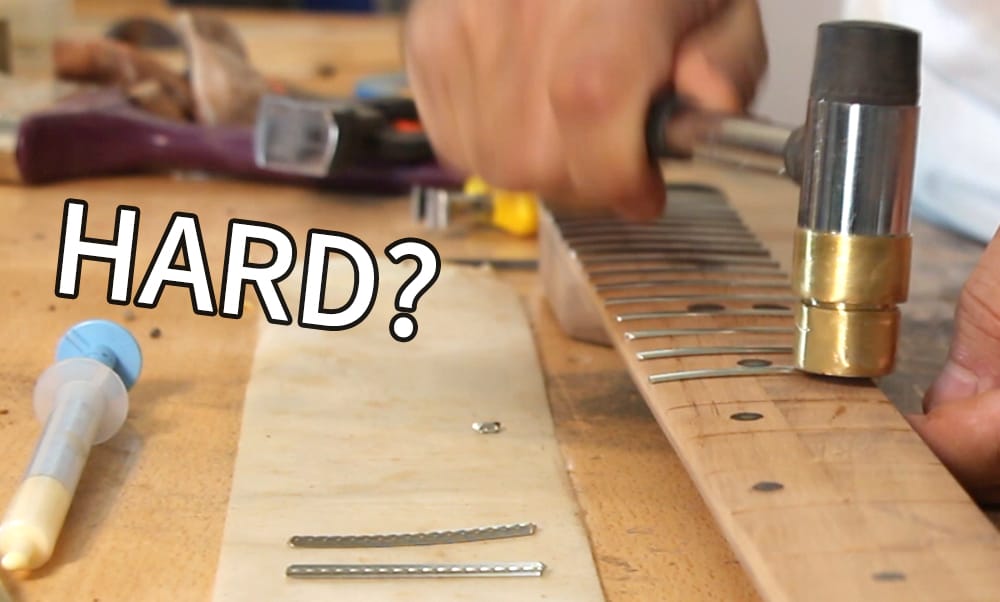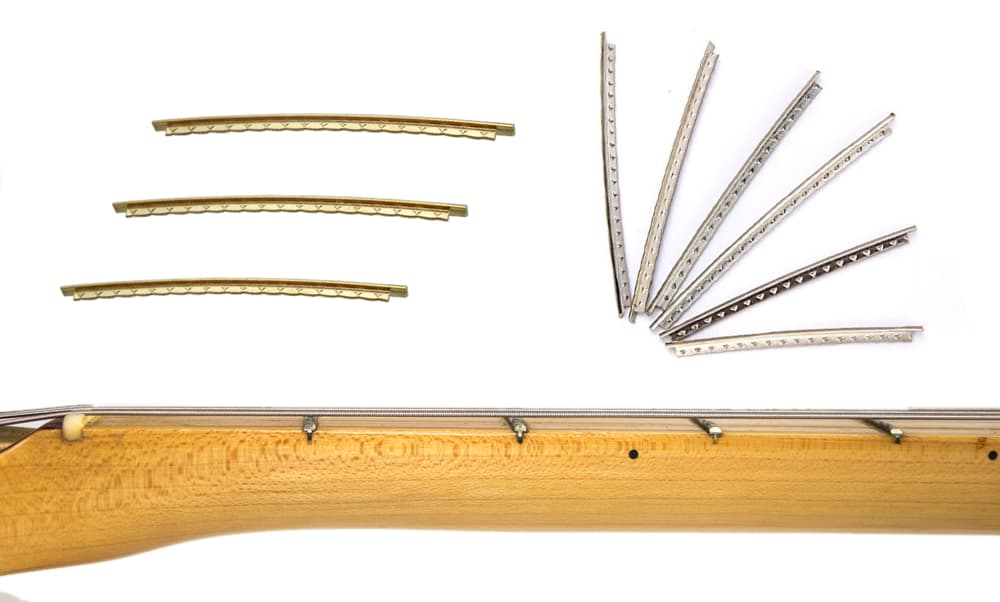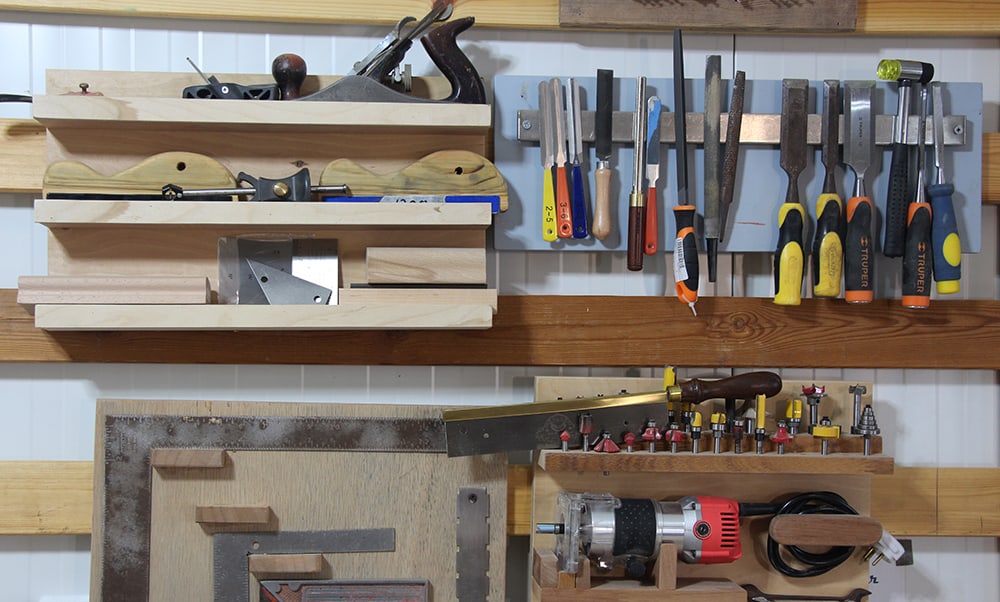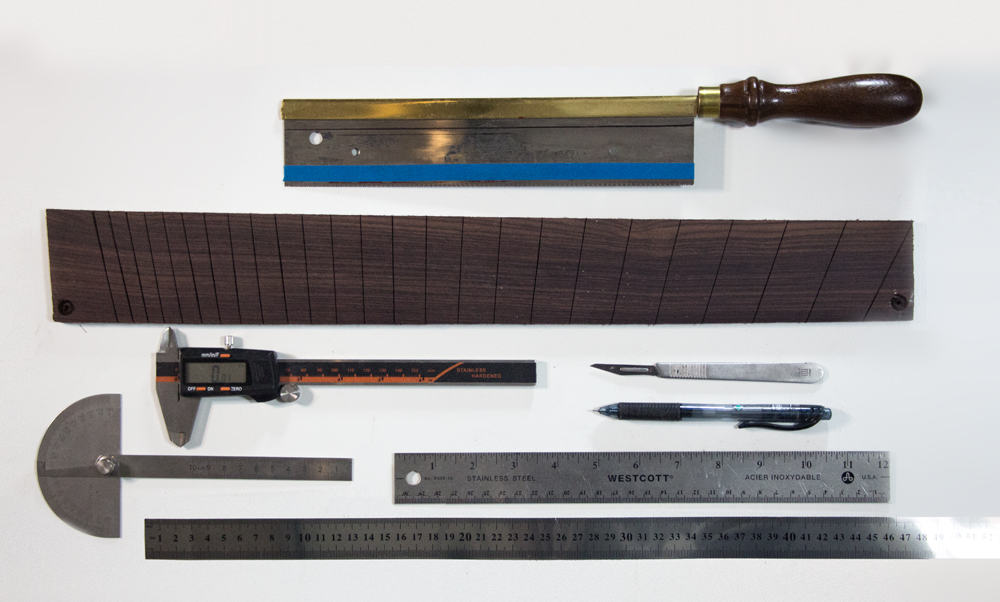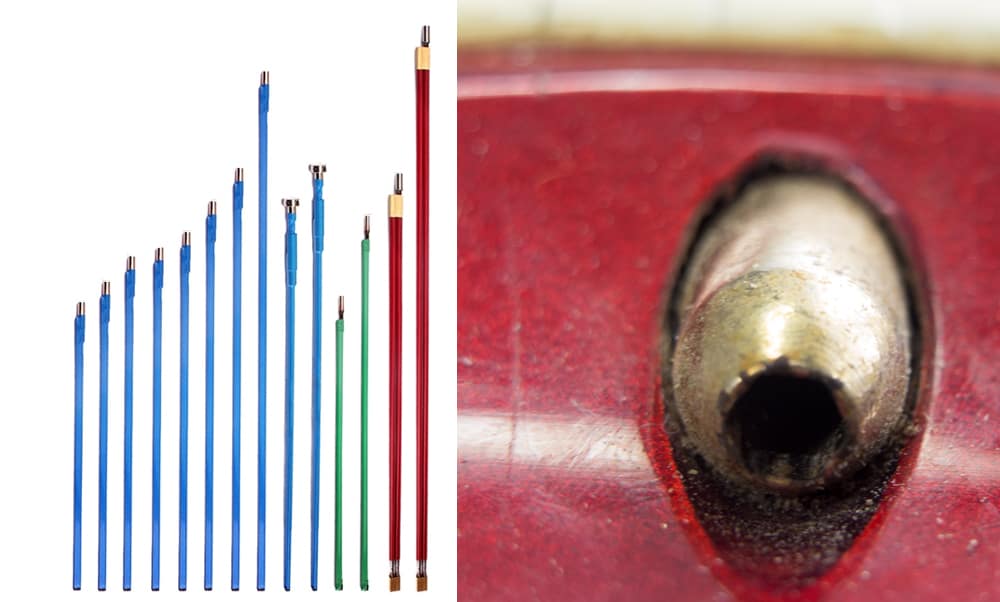It may be a project, you have been thinking about for years, a challenge you would like as a DIY enthusiast or a way to try and save money. I knew I wanted to build an electric guitar since I was a teenager (let’s just say it was before we had Wi-Fi) and with the abundance of information, videos and tutorials and the relative ease at which you can order parts and supplies online, I too, was wondering: “how hard can it be to build a guitar?”
Building a simple electric guitar is not particularly hard, but it is complex and requires a few, very different skills and quite a few tools, including some specialty tools. Building a high- end guitar however, is very hard and will require a high level of skill in more than area. We also need to be very clear about what we define as ‘building a guitar’ as there are a few very different routes to take which will all lead to a guitar but with great differences in time, budget and difficulty. These will include ‘Kit Guitars’, assembling a ‘Parts Guitar’ and ‘Building from Scratch’.
Let’s look at all the combinations and options of guitar building and see how hard they are and if they worth all the fuss. I’ll start with the lowest level of difficulty and work upwards.
Is building a guitar kit Hard?
Starting with the easiest and probably the cheapest route to guitar building. In a guitar kit you get all the parts you need to start and finish your chosen type or style of guitar. This will include the wooden parts, which are the body, neck and fretboard, all the electronics and pickups, and all the other hardware, tuners, bridge, nuts and bolts. The neck will already be having a truss-rod inside with the fingerboard glued and freted. This is probably the most difficult part in the guitar building process. The next part in difficulty would be the finish. Most kits come unfinished and will require either an oil finish or a paint job. This may be the most time-consuming part of the build, although there are more and more kits that can be bought with a finish. Other than that it is just assembly and depending on your level of handiness can take a few hours to a weekend, with basic tools you may already have or can probably borrow from a friend or a neighbors.
Are guitar kits worth it?
Most kits cost 150$- 300$. You can assume that the cost of parts here is indicative of their quality and even if you do a bang of a job putting it together you will not have a 1000$ guitar. You could have an original guitar you built, that can have an original finish. There is also no price on the fun experience you had building it, and in that sense a couple of hundred dollars may be well worth it.
There is a potential for improvement and upgrades though, with a reasonable budget and low level of difficulty. Much more about guitar kits in ‘Are DIY Guitar Kits Worth It? The Pros and Cons of Kits’
Building a guitar from parts
When I refer to building from parts, I don’t just mean finding all the cheapest parts on the internet to essentially create a kit guitar at the same price range as other kits. By ‘building a parts guitar’ I am thinking more along the lines of an experienced guitarist who wants to assemble his dream guitar. For example, one with a Telecaster style body but with specific Humbuckers, a Floyd Rose bridge, and a thin and flat 16” radius neck. With this method, you can purchase quality parts and with a low level of difficulty put together a very high-quality guitar, which can have all your whims, bells, and whistles. There are two main issues to look out for. The first is to plan and know in advance if and how all the parts fit together, this can greatly change the level of difficulty from easy to difficult, and mistakes can be expensive which brings me to the other issue. The second is the price. This can easily rise along with the price of the parts you choose.
Is Building a Guitar from Scratch Hard?
Building from scratch is a process that involves different stages and skills:
Carpentry: From finding and treating the timber to cutting and shaping it, the body of the guitar and even more so the fretboard and neck are not the most trivial of woodworking parts you can build. As far as tools, you will need the ability to cut, plane, join, rout and shape. You can achieve all of this if you are very skilled with hand tools as well.
Fret work: Fretting, leveling, crowning and polishing are what makes a guitar neck from just playable to great and is probably not something you have come across or have the tools to do.
Electronics: Basic guitar electronics are not complicated, but if you haven’t dabbled with soldering may look intimidating. A soldering kit is also necessary.
Finishing: You can get away with a nice oil finish, which can even look professional with a bit of patients and elbow grease. But if you are looking for a glossier mirror like shine of many showroom guitars you may require some experience, and equipment. You can achieve more than decent results with spray cans, but that too will require some experience. Finishing can be a profession by itself.
For some people, this list will look like a great challenge. For others it would look impossible.
How much does it cost to build a guitar?
The parts (excluding the body and neck timber) for a guitar can cost under 180$ for generic and bottom shelf parts. You can get an original and good quality set of parts for under 600$. The timber you get for the body and neck can make a huge difference to your budget. You may be able to find good quality wood in your area for a low price, or you may need to order it for a premium price with expensive shipping. The tolerance becomes bigger the more factors we add, but a low estimate will put you at 100$ for the cheapest timber and 300$ for some fine wood. So, this comes down to 280$ for the cheapest combination (unless you can get the wood for free) and about 900$ for a guitar that can rival custom shop guitar, as far as quality of materials. See all the costs and details in “Is building your own guitar cheaper? Is it worth it?”

Is it cheaper to build your own guitar?
As far as the cost of parts and materials the answer is ‘barely’. But and there is a big one here, you have to look at hidden costs, as well as quality. The cheapest guitar you can build will cost you 280$ and you would expect it to be at least as good as an Epiphone or a Squire which costs around the same (or even less). These are proper guitars, made by experienced professionals. They are certainly not high-end guitars, and they are so cheap because of the combination of cheap parts and materials (and be sure that Fender and Gibson get it for much less than you can), cheap labor, and a quick and efficient assembly line. Their high-end counterparts, the Fenders, and Gibsons do get the better parts and materials, and the extra attention. Your 900$ parts can rival and accede to these guitars (taking your labor cost out of the equisetin) but only if the quality of your work can be as good as or better than the factory-made ones. I am sure that as far as extra attention any builder will give it all, but the question is pure skill and experience.
The biggest hidden cost though would be the tools. Even if you are an experienced wood worker, you will still need a few hundred dollars of Lutherie specific tools. These may give you great return after a few guitars, but certainly not with the first one. If you have not done much woodworking and do not have anything other than a drill and a jigsaw, your costs can easily run higher and accede the 1000$.
How long does it take to build a guitar?
A kit guitar can take a few hours, although could need a few days if you are layering multiple coats of paint and lacquer. A parts guitar is quite the same, especially if you ordered a finished body and neck. When it comes to a scratch build, the number of variables for a first-time builder makes it very difficult to estimate. There are guitar building courses which will take the minimum of 5-10 intensive days for a full guitar build. Take into account that in these courses you will be provided with templates, all the necessary tools and most importantly, guidance. In real life you will need to navigate the building process, while going back and forth to your notes and tutorials. You will also need time to set up and sometimes learn how to use certain tools. Without someone to hold your hand, naturally, everything will also be a bit slower, and many operations will need test runs (advisable) and testing. So, if my point of reference for optimal building time of 10 days, I would say that X2 or X3 times would not be an exaggeration. Add to that unexpected problems and mistakes and you can estimate between 20 and 40 working days.
Set yourself realistic goals
If this is a weekend-based project you can see how this could easily spread over a few good months. Of course, if you are an experienced handyman/ carpenter, have a comfortable and well-equipped working space and familiar with most of the tools, your work may be a lot more efficient. However, for first-time builders whose talents and experience may be more on the guitar playing side of things, the reality may lean towards it taking longer than planned. I am not in any way trying to deter anyone from building a guitar from scratch, on the contrary, my goal is to aid in the process. I do think that planning to finish within a few weekends, may end in frustration, which misses the whole point. If you take your build with stride and end up finishing sooner than you thought, will only make the experience a better one and may give you the urge to put more effort into those final steps we often want to rush through (I know I do).
Is it hard to build an acoustic guitar?
Solid-body guitars are simpler to build than hollow-body, on the technical side. An acoustic guitar is going to be that much harder. You need to be more accurate with everything that has to do with the wood thickness, bracing, and the whole construction process. The body of an acoustic guitar unlike an electric carries the sound of the guitar on its shoulders in a much more significant way. Because of the acoustic aspect, there is less room for error and less tolerance. You can’t upgrade the pickups like you can in an electric. It will also require a whole set of building techniques and tools which are not readily available to most woodworkers and even electric guitar builders.

